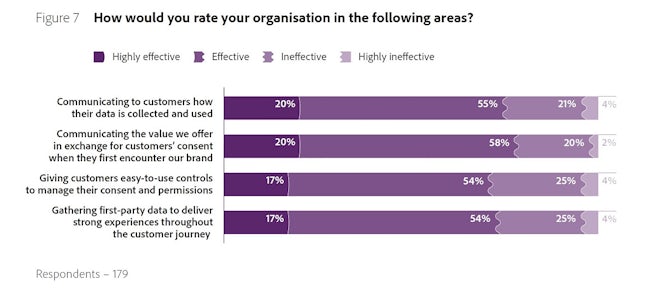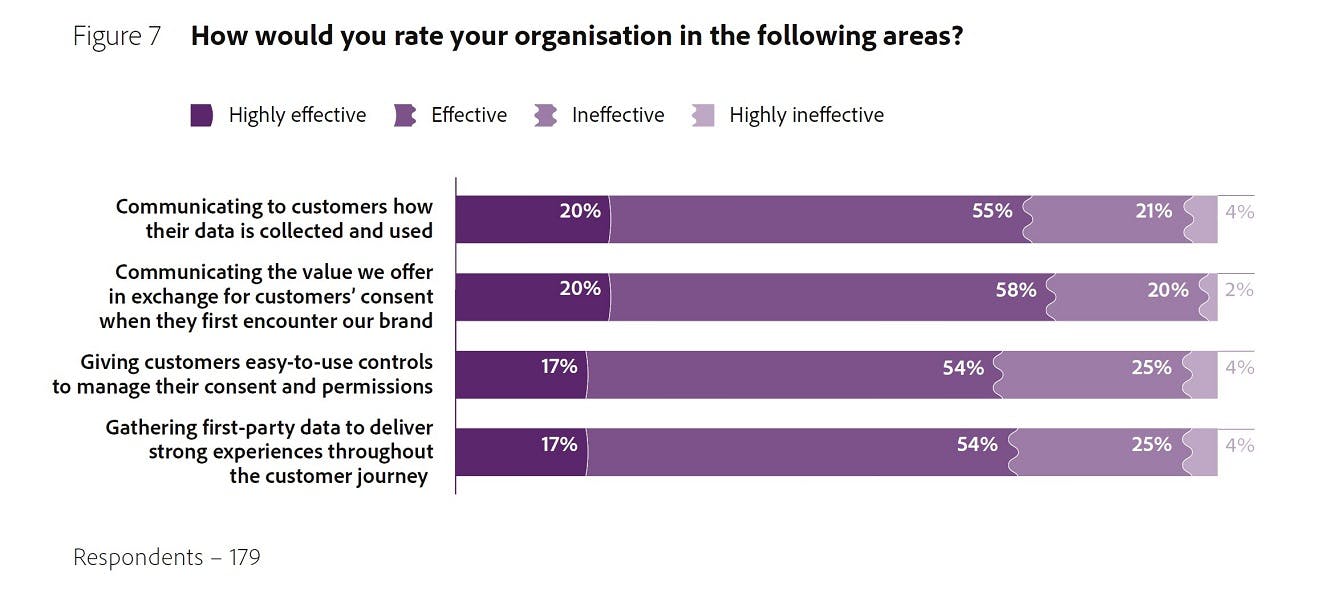Healthcare and pharmaceutical companies have ambitious plans to provide new services and tailored experiences in 2021, according to Adobe’s Digital Trends 2021 report. But how effectively they can achieve this may rely on their approach to data.
Innovation and competition abound in the healthcare sector in 2021, after a year that radically pushed forward healthcare and pharmaceutical companies’ digital transformation agendas and lowered many of the barriers to progress.
Adobe’s 2021 Digital Trends research, carried out in partnership with Econsultancy, surveyed more than 400 global respondents in the healthcare and pharmaceuticals sector and found that a whopping 89% agreed or strongly agreed that, “We’ve had to accelerate our digital transformation plans” over the past year.
However, nearly 7 in 10 (69%) of respondents also agreed or strongly agreed that customer expectations were further ahead than their digital capabilities.
Adobe’s sector report, ‘2021 Digital Trends: Healthcare & Pharma in Focus’, theorises that current healthcare providers may be vulnerable to competition from newer, more digitally advanced competitors – particularly as just 17% of companies surveyed say they are “Very advanced” in terms of their customer experience (CX) maturity. Close to half (49%) say they are “Somewhat advanced”, meaning that their strategy and technology are aligned around CX, but CX is not yet fully embedded within the company. However, close to a third (29%) identify themselves as “Not very advanced” in CX maturity, and 5% say they are “Immature”.
When healthcare and pharma companies are asked about their top priorities for a competitive advantage in 2021, innovation, personalisation and customer experience come to the fore. Nearly half (49%) are planning to focus on “New service offerings to proactively help customers”, while a 32% plan to “Offer exclusive services and privileges”, and 31% want to “Develop and launch direct-to-consumer products and services”.
As the report points out, new service offerings that proactively aid customers are likely to rely on biological data, which when combined with AI can intelligently predict and help to prevent possible health issues. Providing exclusive services and privileges, and launching products and services that are direct to consumer, will also require strong data capabilities that allow companies to segment and tailor the healthcare experience, as well as a customer-centric mindset.
Why data security needs to be “baked in” to healthcare to earn consumer trust
Data is a highly sensitive topic within healthcare, as consumers need to feel able to trust providers with personal, intimate details about their physical state and wellbeing, something they previously might only have shared with a trusted physician or physicians. How well do healthcare and pharmaceutical companies believe that they perform in the realm of communicating to customers about their data, and using it to deliver a strong customer experience?
Three-quarters (75%) of healthcare respondents report that they are “Highly effective” (20%) or “Effective” (55%) at “Communicating to customers how their data is collected and used”, while 71% say they are “Highly effective” (17%) or “Effective” (54%) at “Gathering first-party data to deliver strong experiences throughout the customer journey”.

However, a full 25% still say they are “Ineffective” (21%) or “Highly ineffective” (4%) at communicating with customers about their data, while 29% believe themselves to be ineffective (25%) or highly ineffective (4%) at gathering first-party data to deliver strong CX.
How well healthcare companies are able to communicate the value exchange around sharing data, and secure customers’ trust, seems likely to dictate the extent to which they can optimise the experience for customers in 2021 and put their plans to maintain an edge over competitors into action.







